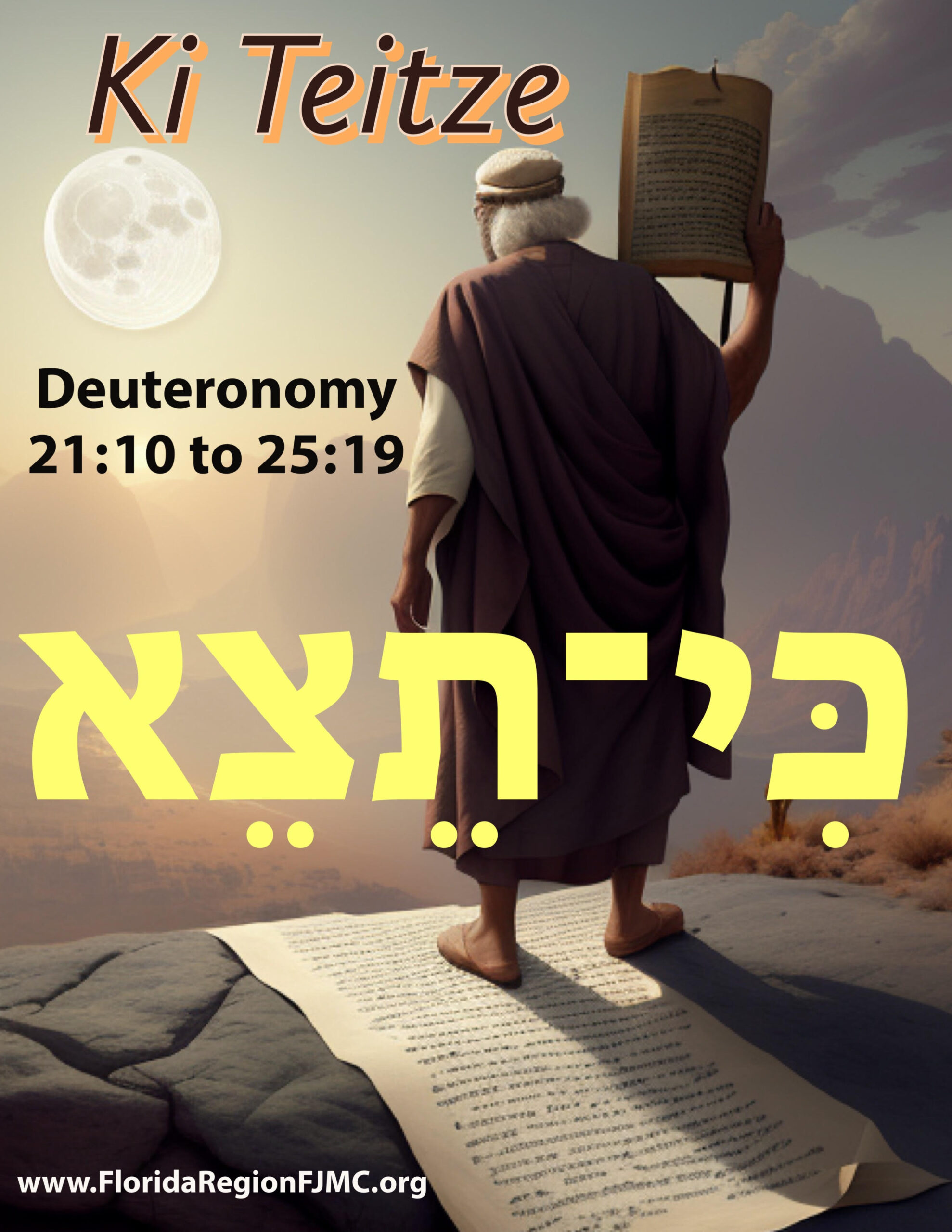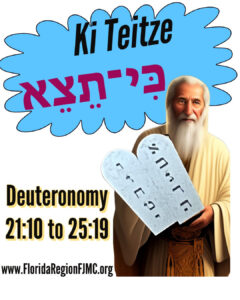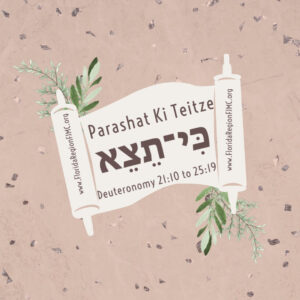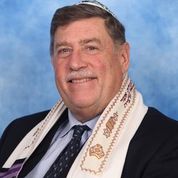
When you Choose Shabbat, you choose to learn that every Shabbat is different and special. This week I learned about Parashat Ki Tietze (כִּי־תֵצֵא), the 49th weekly Torah portion in the annual cycle of Torah readings.
According to Wikipedia, Ki Tietze (כִּי־תֵצֵא), Deuteronomy 21:10 through 25:19, contains 5,856 Hebrew letters, 1,582 words, 110 verses and makes up 213 lines of the Torah scroll. Ki Tietze includes a hodgepodge of miscellaneous laws and ordinances regarding the treatment of a captive of war, inheritance among the sons of two wives, the corpse of an executed person, found property, rooftop safety, prohibited mixtures, sexual offenses, membership in the congregation, camp hygiene, runaway slaves, prostitution, usury, vows, gleaning, kidnapping, repossession, prompt payment of wages, vicarious liability, flogging, treatment of domestic animals, weights and measures and wiping out the memory of Amalek, to name a few.
Rabbi Michael D Klein of Temple Torat Emet offers his insights on this week’s Torah reading, Ki Tietze:
“The Torah portion of Ki Tetzei is actually an expansion of the Sedra Mishpatim and completes the Torah Laws dealing with sexual relationships, captives of war, civil and criminal laws, relations with surrounding cultures, physical hygiene and ritual purity, protection of the weak, prohibition against usurious interest, treatment of servants and laborers, and affirmation of personal responsibility. Once again we are made aware that elevation of the moral and secular aspects of life equals a higher level of partnership with G-d.
Interestingly, there are a set of laws which enumerate what parents are to do if their offspring becomes rebellious and a glutton. They are told that such an offspring is an affront to the 10 Commandments and is to be put to death! However, there is never an event in recorded history where this sentence was ever carried out against such a child, so why does the Torah record such a law? In our society today, we read of many sad incidents of children who become violent and dangerous. Is the Torah, perhaps warning us of the consequences which might occur if we don’t properly fulfil our roles as parents?
Perhaps, just by recording this in the Torah, is Hashem’s way of teaching us through a negative example of the possible negative consequences of a home where is no Shalom Bayit- a home where children grow up in constant strife because parents are so at odds with each other that they fail to guide their children and teach them the laws of morality and respect for others.
Being a parent is one of the most important privileges we are granted but also comes with awesome responsibilities! We need to guide children in the ways of Torah and teach them through love and example how to apply the Torah to every aspect of their lives. We must never let the difficulties of life spiral into a home of constant bitterness and strife or an environment which leads to violence or hatred. The future of our society depends on parents who teach their children the laws of life and whose discipline is given with love and understanding thus ensuring that they will live happy, productive, and meaningful lives for generations to come.
Questions to Ponder :
- When loaning money to a fellow Jew, we are warned against Neshech and Marbit. What do these terms mean and how do they differ from one another?
- Why is a divorced woman forbidden from later remarrying her previous husband?
- Why are we told never to abhor and Edomite and an Egyptian?
- How are we to properly to treat a laborer who completes work for us?”
Rabbi Michael D. Klein attended Yeshiva College of South Florida and served as Torah Reader, Hebrew teacher, Chazzan and spiritual leader of various synagogues throughout South Florida. In January 2015 he became Ritual Director, Bnai/Bnot Mitzvah instructor and 7th grade Hebrew instructor for Temple Torat Emet of Boynton Beach. In October 2019 he was accepted into an accelerated track and received his shicha from Yeshiva Adath Wolkowisk and has been the Rabbinic leadership of Temple Torat Emet since August 2020. In September of 2022 he was appointed Rabbinic and Spiritual Advisor of the Florida Region of FJMC.
Choose Shabbat; choose to celebrate, to light candles, sing songs and learn a little Torah.
This moment of Jewish Learning is brought to you by the Florida Region of the Federation of Jewish Men’s Clubs (FJMC). We are part of a confederation of over 200 Jewish Men’s Clubs and Brotherhoods representing over 20,000 members across the United States, Canada, Latin America, and beyond. Learn more about how your Jewish Men’s Club or Brotherhood can affiliate with the FJMC at: https://www.fjmc.org/content/affiliating-fjmc.
The Florida Region of FJMC serves the needs of affiliated Men’s Clubs and Brotherhoods throughout the State of Florida. Get to know more about the FJMC Florida Region and our growing network of Jewish Men’s Clubs and Brotherhoods at www.floridaregionfjmc.org and please visit and LIKE our Florida Region FJMC Facebook Group at www.facebook.com/FloridaRegionFJMC.








